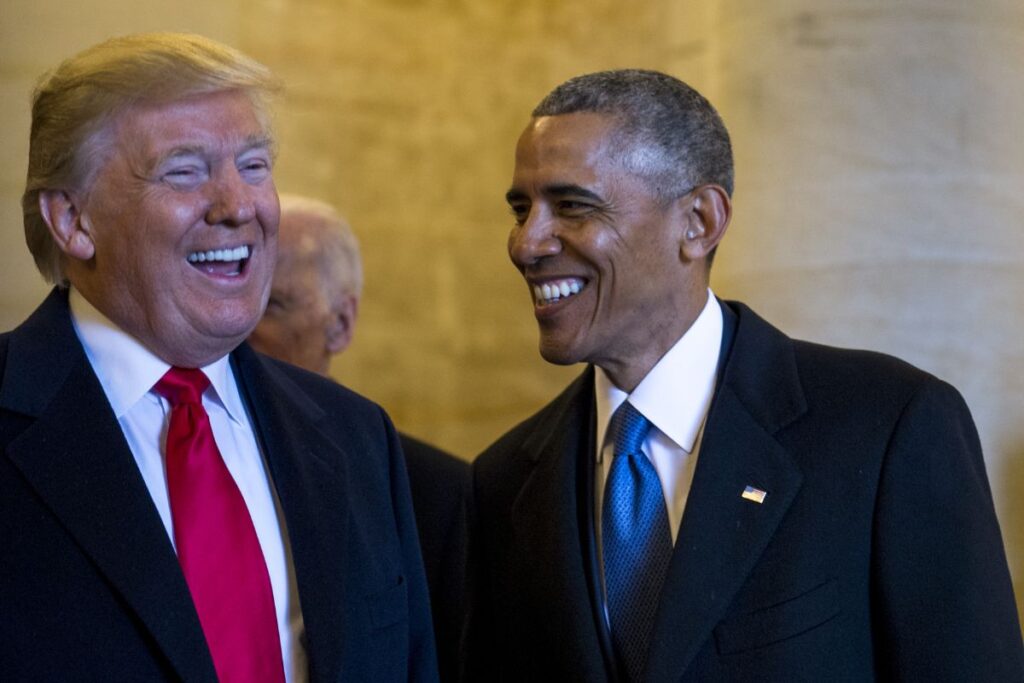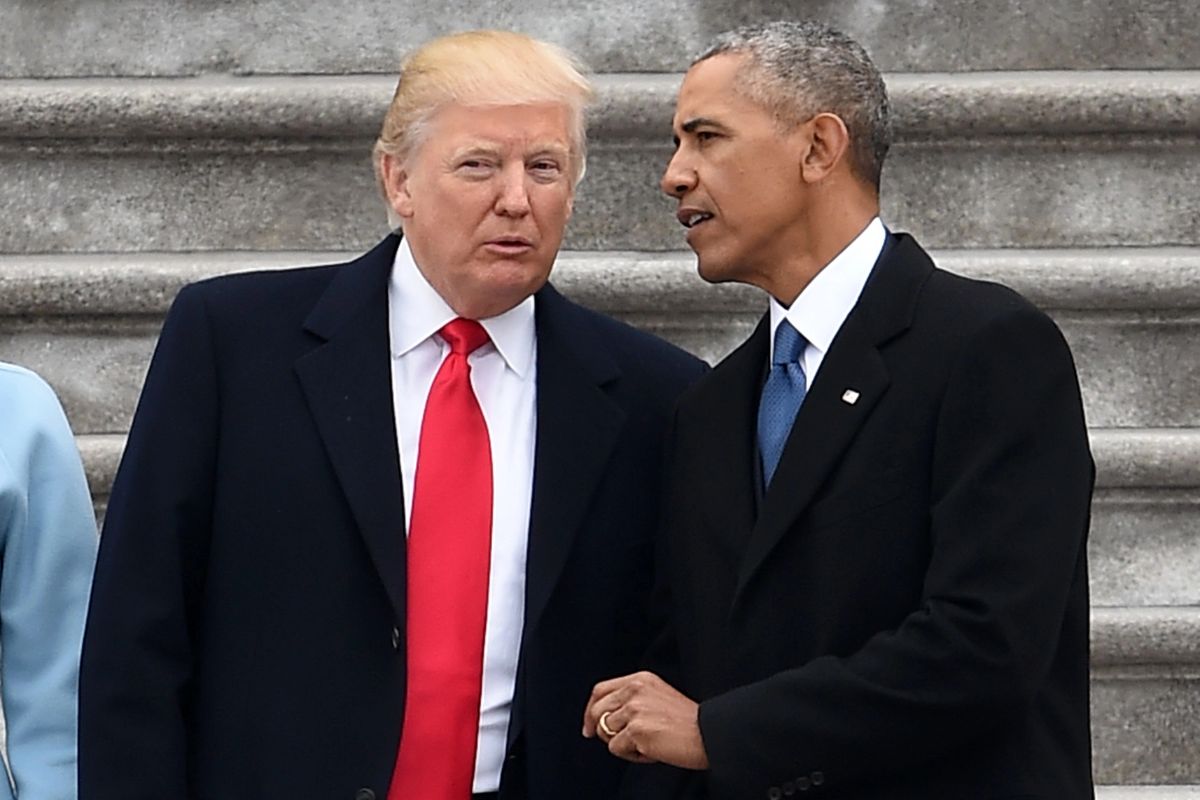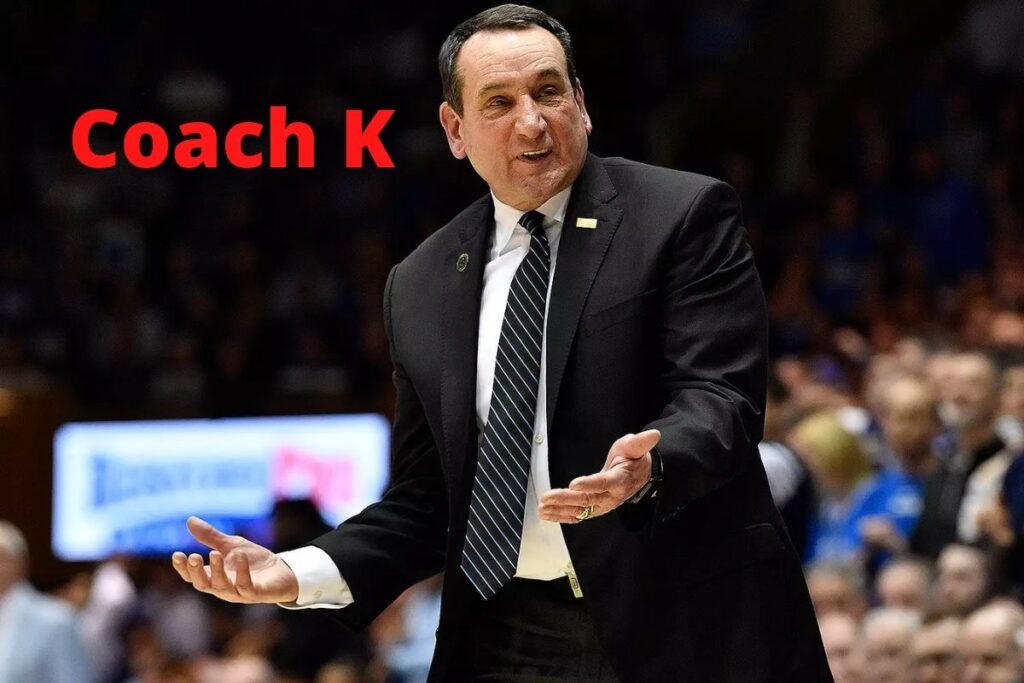THE NATIONAL CAPITAL REGION — Now that the election is coming down to the wire, President Trump’s key closing argument is that he deserves four more years in office because he oversaw “the greatest economy in the history of our country.”
However, if we exclude the last three years due to the impact of COVID-19, we see that the U.S. economy under Trump has performed similarly to the previous three years under President Obama. The economy performed somewhat worse on certain metrics and slightly better on others but did not change significantly overall. It wasn’t even close to being the best.
One example is the average yearly growth rate of 2.5% in real GDP (the most comprehensive measure of economic activity) that occurred throughout Obama’s presidency (2014-2016). The Bureau of Economic Analysis reports that real GDP grew by an average of 2.6% annually throughout Trump’s first three years in office (2017-2019).
In December 2017, Trump predicted that GDP will soar to a whopping “4, 5, and maybe even 6% or higher.” Despite his massive drop in business taxes, GDP growth has lagged behind the average annual gains of 4% seen in the 1990s and twice that seen in the early 1950s.
The government will release the GDP report for the third quarter on Thursday. Following a 31.4% drop in the second quarter, economists anticipate a substantial rebound. However, GDP is expected to shrink by over 4% for the full year due to the epidemic, the largest annual decline in about 75 years.
Contents
United State Increased by Donald Trump
Jobs in the United States increased by 6.6 million in Trump’s first three years in office, compared to 8.1 million in Obama’s final three years in office.
Particularly appealing to his working-class base and supporters in the Midwest, Trump has repeatedly boasted about his performance on production employment. The gap is narrow even within this context.
From the year’s end of 2016 to 2019, 1.27 million new jobs were created in construction and manufacturing, with factory employment leveling off in 2019 due in part to Trump’s trade battle with China. This is in contrast to the 1.13 million jobs added in construction and manufacturing between 2014 and 2016, as reported by the Bureau of Labor Statistics.
The national unemployment rate did reach a half-century low of 3.5 percent just before the coronavirus outbreak in March, and the unemployment rates for Latinos, Blacks, and Asians also hit historic lows at the same time. Economists, however, have observed that Obama presided over a greater absolute increase in the unemployment rate over his three-year term compared to Trump’s.
The Trump team has been touting the fact that American household earnings increased more quickly during Trump’s first three years in office than they did during Obama’s whole eight years in office. In a nutshell, it is right; the median income, after adjusting for inflation, rose 5.8% from 2008 to 2016 and 7.8% from 2016 to 2019, respectively, as reported by the Census Bureau.
Nonetheless, that fails to account for the fact that President Obama and Vice President Joe Biden took office in the midst of the Great Recession. In 2013, the decline in household income finally stopped, and the economy began to recover.
Three Years of Obama’s Presidency
Median income increased by 8.4 percent over the final three years of the Obama administration, which is quicker than the first three years of Trump’s presidency.
Under Trump, the stock market is one metric that has obviously outpaced others. From the conclusion of Obama’s presidency in December 2016 through the end of this year, the broad Standard & Poor’s 500 indexes increased by an average annual rate of 14.7%, roughly twice as much as it had increased over the previous three years of Obama’s presidency.
However, just a minority of Americans hold major holdings in the securities market, thus most people will not feel the effects of market volatility. According to Mark Zandi of Moody’s Analytics, home prices, which are held by a vastly larger proportion of Americans than stocks and bonds, increased by 4.8% during Trump’s first three years compared to 4.9% during Obama’s last three years in office.
Trump has repeatedly pointed to the performance of the stock market as evidence of his economic management. The President made the claim that a Biden administration would be disastrous for the stock market in last week’s debate.
Also, Chicago’s chief investment officer Jack Ablin pointed out that Trump’s 2017 corporate tax cuts didn’t lead to a corresponding increase in business spending. Stock buybacks and dividend payouts hit record levels, which boosted the stock market but did nothing for the economy as a whole.
For this reason, GDP growth stalled. However, large governmental spending, notably on defense, coupled with lower-than-anticipated tax income production, significantly increased the national debt.
According to the Congressional Budget Office, Trump’s first three years in office saw a bigger U.S. budget deficit (about $2.5 trillion) than Obama’s final three years in office (around $1.6 trillion).
Presidents, for all the credit and blame they sometimes claim and get for what happens to the economy, in truth have minimal control over the economy, as evidenced by the fact that side-by-side economic comparisons between Trump and Obama are not substantially different.
Polls have consistently shown that Trump has a higher reputation among Americans when it comes to the economy than Biden has this year, though Trump’s edge has narrowed in recent months.
A recent Gallup poll showed that Trump’s approval rating on the economy was 54%, despite the fact that the pandemic had already pushed the country into recession and that darker days were probably certainly ahead. Among recently re-elected presidents, that is second only to President Clinton’s 57% in 1996.
Although details of Trump’s income, wealth, and taxes remain mostly hidden from the public, experts say his reputation as a businessperson accounts for his higher approval ratings on economic problems compared to race relations and international affairs. The economist Zandi says it’s ironic that the rising stock market has boosted Trump’s economic popularity rating.
Since the economy is doing poorly, interest rates are low and will remain low for some time, he said, explaining the market’s rise.
To collect more details visit our site serveupdate.com and get all the notifications we will give you all new updates daily.





